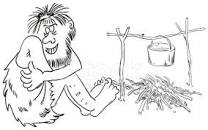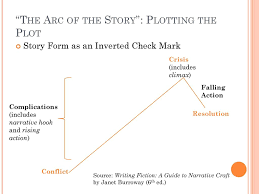Hello all! Denise here!
Welcome to our third How-to post. You'll find the other two readily accessible in the sidebar.
So this time, especially with the Anthology to be released approx. May 2024, it is timely to write another post on:
How to Write Flash Fiction
Read as much or as little of this article as will be helpful to you. WEP has writers at all levels of their careers - some newbies who are just beginning to put themselves out there, to professionals who have spent years learning their craft.
My aim is to provide something for everyone, not exactly an easy remit.
Jump to HERE *** to skip the preamble and go straight to THE STRUCTURE AND DESIGN OF FLASH FICTION.
Flash fiction is simply one way to tell a story. Telling stories is natural to all societies and appears to play a part in our individual and communal health. Once fire was discovered, the ancients gathered and unleashed their imaginations after a hard day hunting and gathering, swapped stories, or told of past generations.
Often more recent traditional societies gather around the campfire, sharing oral histories or news of the day – perceived threats to their lifestyle, where the animals and fish hung out, which they needed for the hunt … and so on.
These days, in First World societies, stories are more likely to be other people’s stories, gathered and curated for us and presented to us in the form of television news or documentaries, or streaming services where many of us binge-watch. Our smart phones or other devices contain many shared stories which makes it easy to read stories during our commute, which has led to a strong demand for shorter episodic stories (Kindle Vella, Radish, Wattpad...).
So … we know stories come in all shapes and
sizes – (definitions may vary)
·
the epic novel of the style of
GRR Martin’s Game of Thrones of a gazillion words - vary from the 200,000+ to Storm of Swords (424,000 words).
·
the very popular commercial
fiction of around 80,000 - 100,000+
words
·
the short novel,
Harlequin-style - 50,000 words
·
the novella, 10,000 – 40,000
words
·
the novelette, 7,500 – 19,000
words
·
the short story, over 1,000
words – 10,000 words
·
then FLASH FICTION ... 1,000 words
and under. Under 1,000 words we have more specific names for 100
word stories, 200 word stories etc. Dribbles and Drabbles etc.
This article is about writing flash
fiction to the 1,000 word count, small
enough to write on your smart phone during work breaks.
"Each
drop encases its own separate note, the way each drop engulfs its own blue
pearl of light." This description of rain, from Stuart Dybek's story
"Nighthawks," is as close to a definition of flash fiction as I can
offer. A successful flash enchants us, each small story successfully rendered
engulfing us for a brief moment - in a 'flash,' in its own brand of light, or
truth. And the effects linger on...
From the Flash Fiction article that has been reclining on WEP pages for many years, but in the way of Pages, rarely accessed.
It is simply a story in miniature, a work
of art carved on a grain of rice—something of import to the artist or writer
that is confined and reduced into a small space with the purpose of creating an
intense, emotional impact.
Edgar Allan Poe gave us the definition of the short story – must be able to be absorbed in one sitting - captures a mood or feeling which translates to the same mood or feeling in the reader.
Credited with the flash fiction craze, (no wonder I admire his fiction so much), Hemingway said: 'I am trying in all my stories to get the
feeling of actual life across. Not to just depict life, but to actually make it
alive.'
*** STRUCTURE AND DESIGN OF FLASH FICTION
If it is in a story, we say, ‘and then?’ Forster tells us: ‘If it is in a plot, we ask ‘why’?’
The story is the what, the plot is
the why. They both have to do with events
occurring in time. Dealing with time is one of the most challenging aspects of
fiction writing because what is on the page rarely corresponds with the passage
of real time. A character may have a memory that lasts for pages, although in
life those pages would have passed in only a second or two. Conversely, fiction
writers can make lifetimes disappear with just a wave of their typing fingers.
‘Centuries passed’, we say, and as far as the story is concerned, they have.
But let’s not get too carried away with plots in flash fiction.
Some writers claim that flash fiction is about ambiguity. In other words, life
does not contain plots. Life is fragmented, chaotic and captures some of that
ambiguity. Flash fiction is one of the most difficult forms of
storytelling because it must embody all the techniques and consummate skill
required in short story construction and then some.
BEGIN YOUR STORY AT THE MOST OPPORTUNE MOMENT
You have at most, 1,000 words to play with. There is no time for elaborate preambles. Drop your reader directly into the action. Start your story as late in the narrative as possible. The conflict and tension should already be present from the beginning. You just need to drop your characters in the midst of it.
For example, in the flash I've written for Chocolat (upcoming August WEP) I begin with my main character arriving at her favorite restaurant in Paris:
"The restaurant, with its silky red walls and black
chandeliers, wrapped its dark arms around me, welcomed me home to Paris after a
long absence."
So we know the setting already, and I hope the reader is
already wondering where she's been. So I drop that in the next sentence:
"As a war correspondent in the Middle East, food,
any food was a bonus eaten on the run, but I can’t recall the taste, but I
recall much else I’d rather forget."
IS THE STORY’S CONFLICT IMMEDIATELY CLEAR?
Conflict is at the heart of story. As James Scott Bell said in his Lock Method for Structure: Put your characters up a tree and throw rocks at them. You may think that a story about a man wandering up and down the city streets contemplating the meaning of life will wow your readers. Think again. The ‘navel-gazing narrator’ is usually a bore. Too often he or she is simply an excuse to keep you, the author, from delving into more emotionally troubling, but far more interesting, material. Your reader should be able to answer the crucial question: ‘Where’s the trouble?’ by the end of the first sentence, paragraph or page. It’s not impossible to write a story in which a character is in conflict only with his or her environment, but it’s much easier to bring two people into conflict. Someone wants something, but a second person is in the way of them getting what they want. Or to make a story super interesting, maybe the protagonist wants to get away with something and someone tries to stop him. It is the oldest plot formula in the world. Which means it has been working for millennia.
DOES SOME SIGNIFICANT CHANGE OCCUR DURING
THE COURSE OF YOUR STORY?
There isn’t time for extended rising action of a novel or a short
story or a long story. Still, there must be movement/action/conflict in your
story. Maybe your protagonist suffers a sudden lapse of self-confidence.
Perhaps. Maybe he encounters some aspect of the world so chilling that it stuns
him into silence. Your characters might succeed, or they might fail, in facing
the challenges in front of them, but at the end of the story they should be
different than they were when it began. Understand the story arc.
My flash builds on the hints I drop throughout the story.
IS THE DESCRIPTION OF PLACE AND TIME APPROPRIATE TO YOUR STORY?
Most flash fiction stories use one setting only as moving between locations takes up too much time. Some stories need lots of detail. Some work well without too many specifics. Check your story for spots that seem blank or blurry (add more details) or cluttered and jumbled (eliminate unnecessary information). Remember that the simple fact of naming or not naming a location - Wal Mart or a large retail store, or Chicago vs a small town, may affect the level of detail you need to include in your story.
IS YOUR DESCRIPTION OF REAL PLACES ACCURATE?
Paris is a great city in which to set a story, but do you know much about it? There are ways to find out precise details about settings, but arguably the best stories encapsulate details only a native (or regular visitor) will know.
DOES YOUR STORY END AT THE BEST POSSIBLE PLACE?
You may feel that your story requires a
sentence or two of tying things up, you don’t want to end before your conflict
has played itself out, but don’t hang around too long after the climax.
Consider deleting the last paragraph or two of your first draft. Leave it to
your reader to puzzle out the meaning of your story.
For example: The where-to-end is always tricky. I played with several and still was not convinced it ended where it should. Then I remembered the theme, Chocolat, so I added the chocolate touch.
“I saw in the waiter's doleful eyes that he’d realized
Benoit wasn’t coming back, and he offered succor in the way he knew best. He
raised his eyebrows.
I nodded. Yes, please.
Chocolat.”
So, to summarize this section:
Flash
fiction is a form of extremely short story-telling characterized by its brevity
and conciseness. It is a literary genre that focuses on telling a complete
narrative or conveying a significant moment or idea in a compact and condensed
manner.
What
sets flash fiction apart is its ability to create a complete story arc,
including characters, setting, conflict, and resolution, within a limited word
count. Due to the strict constraints, flash fiction often relies on evocative
language, powerful imagery, and precise word choice to maximize the impact on
the reader. Flash fiction can encompass various genres, themes, and styles,
offering a quick and intense reading experience that captures the essence of a
larger narrative in a condensed format.
I hope you learnt something about writing Flash Fiction, and we'll see some great stories submitted for the WEP 2024 Anthology. Happy writing!
Let's rock this Flash Fiction world!
Spread the word. A tweet is pre-written below. Add the Chocolat image to it if you like. Twitter loves images.
#How-to-write-flash-fiction, #amwriting, #writersoftwitter, #writingcommunity,#writingcraft, #flashfiction @DeniseCCovey, #@yolandarenee @SoniaDogra16 @jemifraser
https://writeeditpublishnow.blogspot.com/2023/07/wep-how-to-write-flashfiction-article.html
ANOTHER TWEET FOR YOU!
The best examples of a
fine Chianti are a visceral tasting experience; an intense sense of place
developing with a single sip – the same can be said of #flashfiction #writingcommunity #writersoftwitter #amwriting
https://writeeditpublishnow.blogspot.com/2023/06/wep-how-to-write-flashfiction-article.html
FURTHER READING:
Field
Guide to Writing Flash Fiction by The Rose Metal Press - my go-to.
Up
in Michigan by Ernest Hemingway – one of the flashes that began the short,
short story revival in the 1980s.
Flash Fiction Examples - https://examples.yourdictionary.com/5-flash-fiction-examples-to-inspire-and-entertain.html
Flash Fiction - WEP Pages - has many sites to access and more information.
Denise










Thoughts to ponder. Thank you.
ReplyDeleteHi Denise! This is so comprehensive and I love the references, besides the sneak peek into your flash for Chocolat. Thank you for putting this together.
ReplyDelete-Sonia
Great post! Complete and well-written.
ReplyDeleteVery detailed!
ReplyDeleteSuperb! Love the history and the tips.
ReplyDeleteI just hope it's helpful. A very enjoyable write.
ReplyDeletePlease read my post
ReplyDeleteBeautiful blog
ReplyDeleteGreat tips, Denise!
ReplyDeleteGreat reaading your post
ReplyDelete